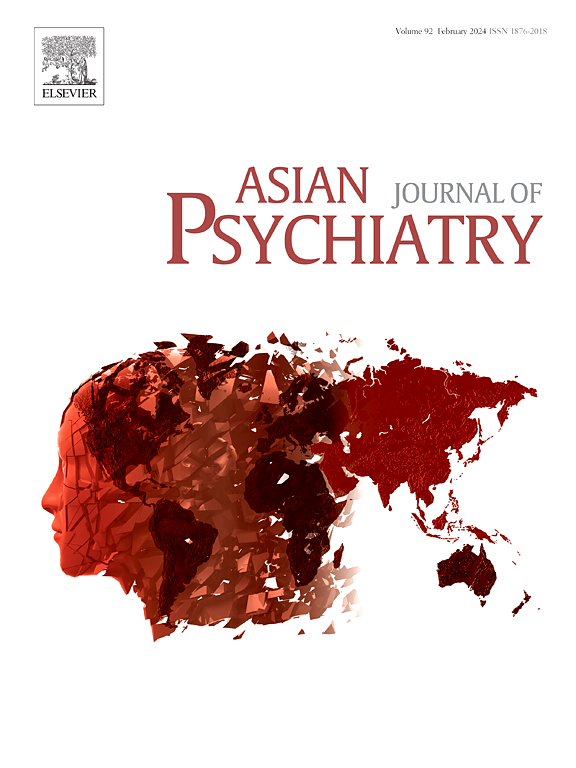情绪调节维度与躯体症状障碍之间的关联:系统回顾与荟萃分析
IF 3.8
4区 医学
Q1 PSYCHIATRY
引用次数: 0
摘要
通过荟萃分析澄清躯体症状障碍(SSD)与情绪调节(ER)缺陷之间的关联效应大小,可能会改善对SSD患者的ER相关治疗。躯体症状障碍患者的适应性ER水平较低(总体Hedge's g = -0.618,95 %CI [0.872,-0.365];意识、描述、清晰度、接受、宽容、自我效能信念和认知再评价等ER维度的Hedge's g介于-0.451至-1.344之间)。适应不良的心理障碍维度(灾难化和表达抑制)与 SSD 没有明显的关联。心理治疗的重点是发展适应性ER,而不是减少适应性ER,这可能是治疗SSD患者更有前途的方法。本文章由计算机程序翻译,如有差异,请以英文原文为准。
The association between emotional regulation dimensions and somatic symptom disorders: A systematic review and meta-analysis
Clarifying the effect size of the association between somatic symptom disorders (SSDs) and defects in emotional regulation (ER) dimensions through a meta-analysis may improve ER-related treatment for SSD patients. SSDs exhibited a lower level of adaptive ER (overall Hedge’s g = −0.618, 95 %CI [0.872, −0.365]; Hedge’s g for ER dimensions of Awareness, Description, Clarity, Acceptance, Tolerance, Self-efficacy belief, and Cognitive Reappraisal ranged from −0.451 to −1.344). Maladaptive ER dimensions (catastrophizing and expressive inhibition) showed no significant associations with SSDs. Psychotherapy focusing on developing adaptive ER rather than reducing maladaptive ER may be a more promising approach for treating SSD patients.
求助全文
通过发布文献求助,成功后即可免费获取论文全文。
去求助
来源期刊

Asian journal of psychiatry
Medicine-Psychiatry and Mental Health
CiteScore
12.70
自引率
5.30%
发文量
297
审稿时长
35 days
期刊介绍:
The Asian Journal of Psychiatry serves as a comprehensive resource for psychiatrists, mental health clinicians, neurologists, physicians, mental health students, and policymakers. Its goal is to facilitate the exchange of research findings and clinical practices between Asia and the global community. The journal focuses on psychiatric research relevant to Asia, covering preclinical, clinical, service system, and policy development topics. It also highlights the socio-cultural diversity of the region in relation to mental health.
 求助内容:
求助内容: 应助结果提醒方式:
应助结果提醒方式:


